Enhanced TDS
Identification & Functionality
- Blend
- No
- Chemical Family
- Country of Origin
- Function
- Resin
- Plastics & Elastomers Functions
- Product Code
- MITM15034
- Single Ingredient
- Yes
- Technologies
- Product Families
Features & Benefits
- Labeling Claims
- Materials Features
Applications & Uses
- Plastics & Elastomers Processing Methods
- Processing Information
- Typical melt temperature (Min / Recommended / Max) : 230°C / 250°C / 280°C.
- Drying time and temperature (only necessary for bags opened for more than two hours) : 4-8 hours at 80-90°C.
Properties
Technical Details & Test Data
- Modulus Data
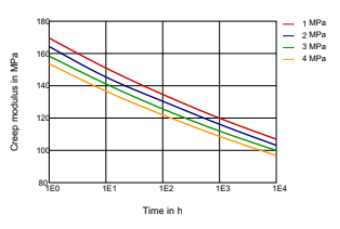
- Technical Data
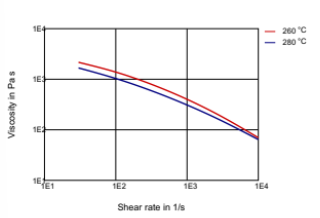
- Technical Data
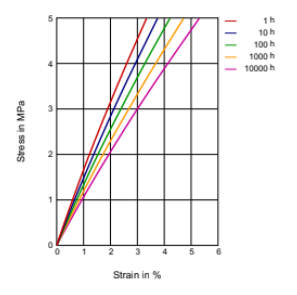
- Technical Data
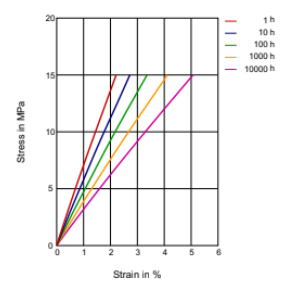
- Technical Data
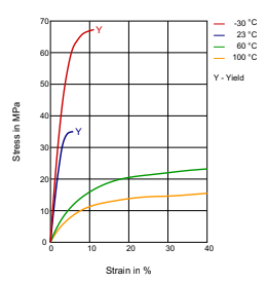
- Technical Data
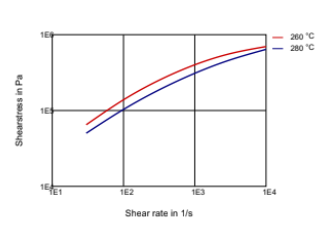
- Technical Data
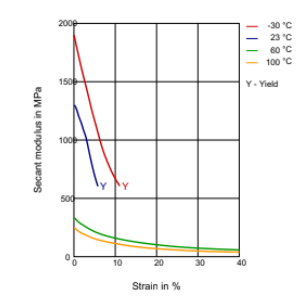
- Modulus Data
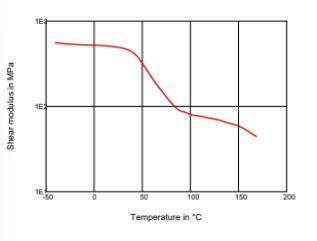
- Modulus Data
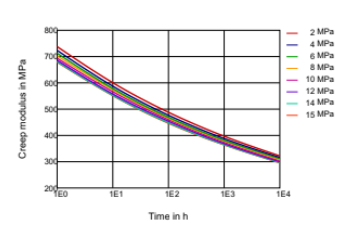
Packaging & Availability
Principal Information
- Group Principal Number
- S000003
- Principal
Other
- Color (SDS)
- Colorless
- Insoluble in (SDS)
- Water
- Item Number
- Odor (SDS)
- Odorless
- Other Hazards
- Processing may release vapors and/or fumes which cause eye, skin and respiratory tract irritation, Prolonged or repeated exposure may cause: headache, drowsiness, nausea, weakness, (severity of effects depends on extent of exposure) .
- Temperature Control
- Yes
- USA/DOT UN Number
- Not Applicable
- Electrical Properties
Value Units Test Method / Conditions Dielectric Constant 3.0 - IEC 60250 at 100 Hz, dry Dielectric Constant 3.0 - IEC 60250 at 1MHz, dry Dielectric Strength 30.0 kV/mm kV/mm IEC 60243-1 condensed Dissipation Factor 0.0308 tan δ tan δ IEC 60250 at 100 Hz, dry Dissipation Factor 0.0183 tan δ tan δ IEC 60250 at 1MHz, dry Surface Resistance 100000000000000.0 Ω Ω IEC 60093 condensed Volume Resistivity 1000000000000.0 Ω-cm Ω-cm IEC 60093 condensed - Material Composition
Value Units Test Method / Conditions Carbon Content 96.0 % % ASTM D6866 - Mechanical Properties
Value Units Test Method / Conditions Charpy Impact Strength 11.0 kJ/m² kJ/m² ISO 179-1EA at 23°C, condensed, notched Charpy Impact Strength 12.0 kJ/m² kJ/m² ISO 179-1EA at -30°C, condensed, notched Hardness 72.0 Shore D Shore D Hardness 72.0 Shore A Shore A ISO 868 Nominal Strain at Break min. 50.0 % % ISO 527-1 condensed, at break, nominal Nominal Strain at Break min. 50.0 % % ISO 527-2 condensed, nominal Puncture Energy 70.0 J J ISO 6603 at -30°C, condensed Puncture Force 6000.0 N N ISO 6603 at -30°C Strain at Yield 38.0 % % ISO 527-1 condensed Strain at Yield 38.0 % % ISO 527-2 condensed Tensile Modulus 1280.0 MPa MPa ISO 527-1 condensed Tensile Modulus 1280.0 MPa MPa ISO 527-2 condensed - Physical Properties
Value Units Test Method / Conditions Density 1020.0 kg/m³ kg/m³ ISO 1183 condensed Density 1020.0 kg/m³ kg/m³ ISO 1183 dry basis Load/Unload Temperature 145.0 °C °C ISO 75-1 at 0.45 MPa, dry, deflection under load Load/Unload Temperature 50.0 °C °C ISO 75-1 at 1.80 MPa, dry, deflection under load Load/Unload Temperature 145.0 °C °C ISO 75-2 at 0.45 MPa, dry, deflection under load Load/Unload Temperature 50.0 °C °C ISO 75-2 at 1.80 MPa, dry, deflection under load Melt Volume-Flow Rate 1.0 cm³/10 min cm³/10 min ISO 1133 at 275°C, 2.16 kg, dry Melting Point 186.0 °C °C ISO 11357-3 at 10°C/min Melting Point 186.0 °C °C ISO 11357-1 at 10°C/min Softening Point 160.0 °C °C ISO 306 at 50°C/h, 50N, dry Storage Temperature max. 140.0 °F °F Water Absorption 1.9 % % ISO 62 dry basis - SDS Physical and Chemical Properties
Value Units Test Method / Conditions Bulk Density (SDS) 550.0-650.0 kg/m³ kg/m³ Decomposition Temperature (SDS) min. 662.0 °F °F Density (SDS) 1.02-1.03 g/cm³ g/cm³ Lower Explosion Limit (SDS) 96.0 % % at 85⁰C Melting Point (SDS) 183.0-187.0 °C °C Specific Gravity (SDS) 1.02-1.03 - at 23° C, water=1 - Shelf Life & Stability
Value Units Test Method / Conditions Shelf Life 24.0 mo mo - Thermal Properties
Value Units Test Method / Conditions Coefficient of Thermal Expansion 0.000085 /K /K ISO 11359-1 dry, parallel Coefficient of Thermal Expansion 0.000085 /K /K ISO 11359-2 parallel, dry
